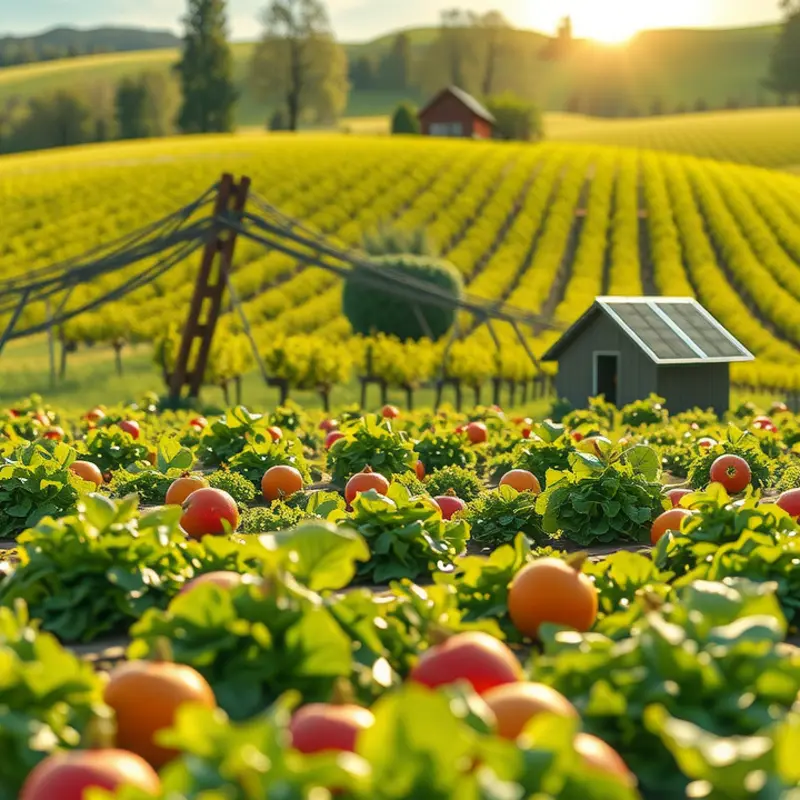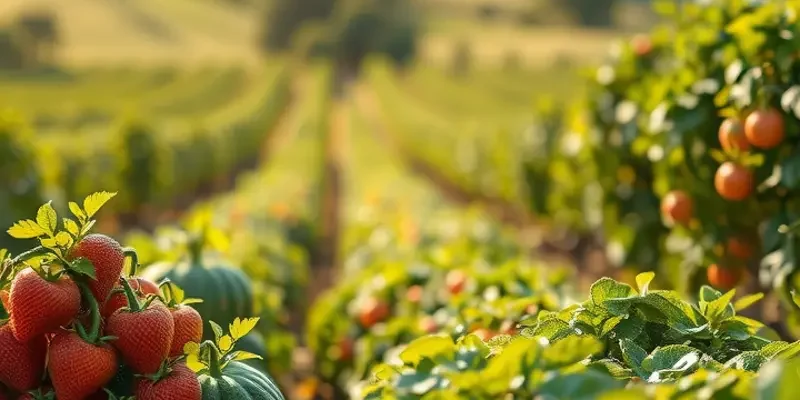Making environmentally-conscious food choices can significantly mitigate deforestation. Each meal offers an opportunity not only to nourish our bodies but also to protect vital ecosystems. By considering the sources of our food and prioritizing sustainable practices, we can actively contribute to the preservation of forests worldwide. This article provides practical guidance on meal selections that minimize environmental impact and promote a balanced ecosystem.
Plant-Based Power: Embrace a Green Diet

Adopting a plant-based diet can lead to meaningful environmental benefits. By reducing the demand for meat and dairy, significant contributors to deforestation, we can make a positive impact on the preservation of forests. Embracing a vegetarian or vegan lifestyle doesn’t mean sacrificing nutrition or flavor. Instead, it offers an opportunity to explore a diverse world of plant foods that provide all the essential nutrients our bodies need.
Nutritional Essentials from Plants
Plants are packed with vital nutrients. Legumes, such as lentils, chickpeas, and beans, are excellent sources of protein, fiber, and B vitamins. Whole grains like quinoa, brown rice, and oats provide complex carbohydrates and essential minerals such as magnesium and iron. Nuts and seeds are rich in healthy fats, protein, and vitamins E and B6. Leafy greens, including spinach and kale, as well as colorful vegetables, like bell peppers and carrots, offer a wealth of vitamins A, C, and K, along with antioxidants.
For those concerned about specific nutrients typically associated with animal products, such as calcium and vitamin B12, there are abundant plant-based sources and fortified options available. Calcium can be obtained from fortified plant milks, tofu made with calcium sulfate, and dark leafy greens. Fortified cereals and nutritional yeast are great sources of vitamin B12.
Incorporating More Plants into Your Diet
Transitioning to a plant-based diet can seem daunting, but with practical strategies, it can be both enjoyable and sustainable. Begin by incorporating more plant-based meals into your routine gradually. Meatless Mondays, for instance, can be a great start. Explore the vast variety of plant-based protein sources and experiment with spices and herbs to enhance flavors.
Meal prepping is an essential tool in making plant-based eating accessible. Batch cooking grains and legumes at the beginning of the week can save time and make it easier to assemble quick meals. Practical ingredient batching can be explored further here.
Simple Plant-Based Recipes
Finding simple recipes is crucial for maintaining a plant-based diet. A hearty chickpea salad with quinoa, cucumber, and tomatoes provides a refreshing and nutritious meal. Try a lentil curry, which is both comforting and rich in flavor, using coconut milk and a blend of spices for an indulgent yet healthy option.
When shopping, focus on filling your cart with whole foods. Buy seasonal vegetables to enhance freshness and affordability. Experiment with meat substitutes, but rely on whole foods as much as possible to ensure nutritional balance.
By embracing a plant-based diet, you’re contributing to the reduction of deforestation while also promoting your own health. The diversity and richness of plant foods lead to exciting culinary adventures and a deeper connection with our planet. Let your meals be a testament to sustainable living and a commitment to protecting global forests.
Sustainable Sourcing: Where to Find Your Food

Choosing food sourced from eco-friendly farms is essential in reducing deforestation. Supporting local agriculture not only bolsters your community’s economy but also reduces the carbon footprint associated with long-distance transportation. Locally maintained farms often practice sustainable methods, preserving biodiversity and soil health.
Understanding certifications like USDA Organic and Fair Trade can help us make informed decisions. USDA Organic certification ensures that no synthetic fertilizers, pesticides, or genetically modified organisms (GMOs) are used. This promotes healthier soil and water with reduced chemical runoffs. Fair Trade, on the other hand, focuses on ethical standards that ensure fair wages and safe conditions for workers. Choosing products with these labels supports sustainable and ethical farming practices.
Seasonal eating is another impactful way to reduce your environmental footprint. By consuming fruits and vegetables at their peak harvest time, we align with nature’s cycles, cutting down on the need for energy-intensive storage and artificial growth enhancers. Seasonal produce, often found at farmers’ markets, is fresher and tastier, maximizing nutritional value. To locate local farmers’ markets, explore community bulletin boards, social media groups, or websites dedicated to farm-to-table initiatives.
Identifying sustainable food brands requires some research. Start by examining company commitments to reducing their environmental impact. Brands that invest in regenerative agriculture, use eco-friendly packaging, or commit to zero-waste initiatives are steps in the right direction. By supporting these brands, we can vote with our wallets for a more sustainable food system.
Reducing food waste is another cornerstone of sustainable eating. Mindful consumption and effective meal planning significantly cut down the amount of food that ends up in landfills. Planning meals around what you already have reduces unnecessary purchases, saving money and resources. For tips on reducing food waste, explore our guide on low-waste cooking prep.
By choosing sustainably sourced foods, supporting local agriculture, and being mindful of waste, we take powerful steps toward preserving our forests. Every decision in our daily meals contributes to a much larger picture of environmental stewardship.
Final words
Every meal presents a choice, a chance to battle the alarming rates of deforestation. By prioritizing plant-based foods and sourcing local, sustainable options, individuals can play a crucial role in preserving our planet. Small sacrifices in our diet can yield huge gains for the environment, ensuring that forests can continue to thrive for future generations. Empower yourself with knowledge and practical solutions, and inspire friends and family to take part in this vital movement towards eco-friendly eating. Together, our collective efforts can lead to significant change, fostering a healthier planet.








